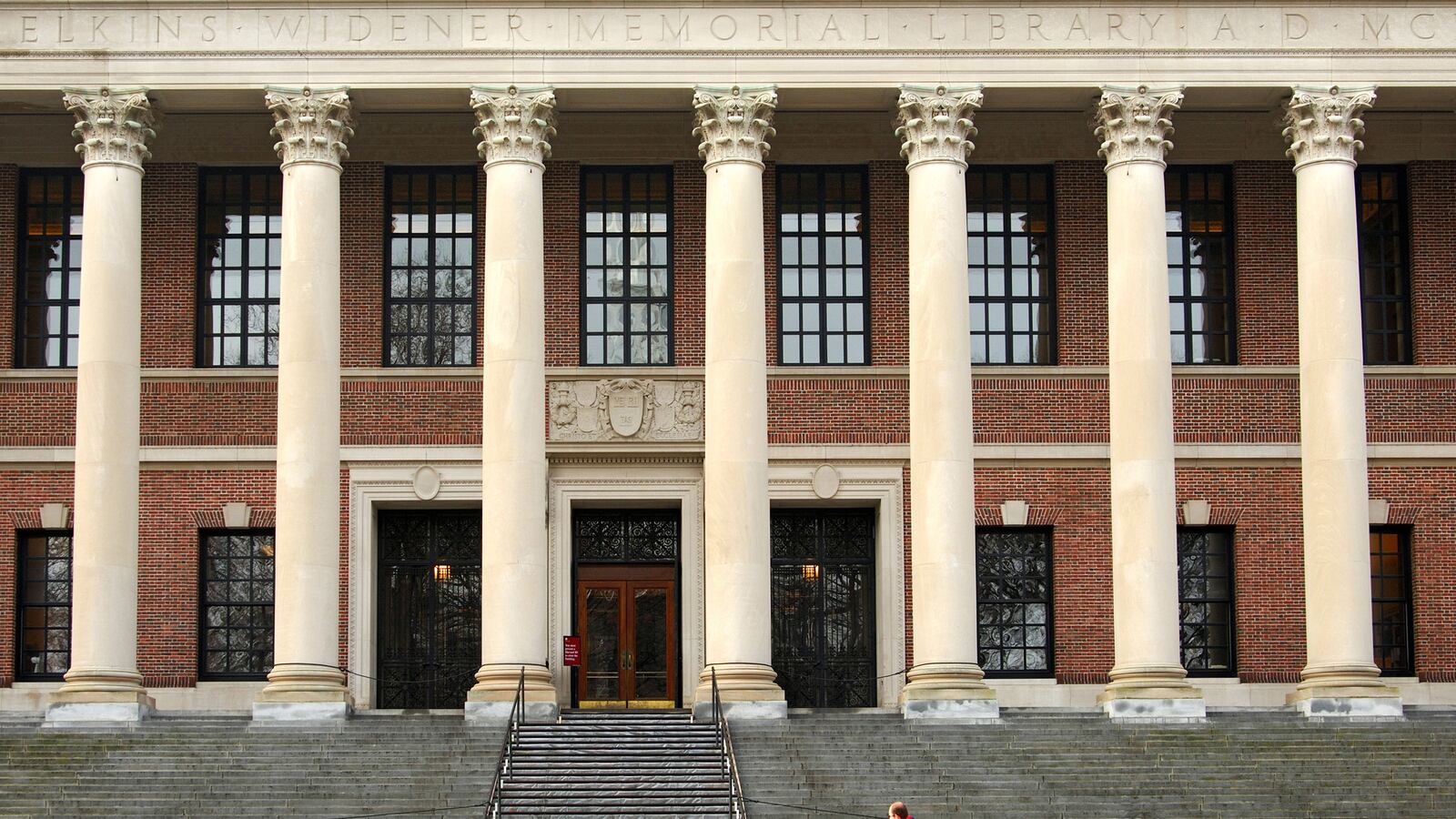Harvard’s oldest final club, the famously exclusive all-male Porcellian Club, is changing its membership selection process—a sign that a punitive administrative policy targeting the school’s single-sex clubs is achieving its desired effect.
After more than 200 years of selecting prospective members to “punch,” the first step of an initiation process where current members get to know “punchees,” the Porcellian Club will open its doors to any male student who wishes to compete for a membership seat.
The PC club alerted the administration of these changes in April, according to The Crimson, shortly after the all-male A.D. club announced its commitment to hold an open punch process and enforce a “sexual assault prevention training program” for its members.
Though these changes will partially address concerns laid out by College Dean Rakesh Kharuna, neither club has announced plans to open its doors to women—one of the main objectives of Kharuna’s new policy towards the school’s independently-owned final clubs.
Beginning with the graduating class of 2021, which will enter Harvard in 2017, members of single-sex clubs will no longer be qualified for leadership positions at the university, like athletic team captaincies.
They will also not be considered for postgraduate fellowships, like the Rhodes, Marshall, and Fulbright Scholarships.
In his letter announcing the sanctions, Dean Kharuna emphasized that the “discriminatory membership policies of these organizations...are rife with power imbalances,” and that the “most entrenched of these spaces send an unambiguous message that they are the exclusive preserves of men.”
The all-male Delphic Club is reportedly considering joining forces with one of Harvard’s current all-female clubs, and has already met with the all-female Bee, IC, and La Vie clubs, according to The Crimson.
Meanwhile, the all-female Sabilière Society has announced plans go co-ed, though not without trepidation.
“There is a lot of uncertainty on our end, especially as the college has not yet given us much by way of specifics as to how exactly it is going to enforce its policies and how it will treat clubs that it considers to be ‘co-ed,’” Eugenia Schraa, co-founder and graduate member of the Sabilière Society, wrote in an email to The Daily Beast.
Schraa explained that the decision was not an easy one for her and other graduate members. “The club was founded explicitly on feminist grounds, and that identity has meant a lot to us,” she wrote.
But given undergrad members’ willingness to welcome men into the club under pressure from the administration, Schaa said she’s now on board with the decision. Going forward, she’s more concerned about logistics.
“We hope that the administration will enact enforcement measures that ensure true equity and work for the safety of all women in the new ‘co-ed’ regime that they are trying to create,” she wrote, adding that “many of us are concerned about whether or not our club and other female clubs will be able to survive this transition.”
Schaa also stressed that she was skeptical of the link between sexual assault on campus and final club culture, which they pushed in private meetings with final clubs, according to a comprehensive new report in The Crimson.
“I do not think Dean Khurana or the administration has done enough to explain the link they have drawn between forcing the clubs to go co-ed and mitigating sexual assault,” Schaa wrote.
On Wednesday, twelve distinguished Harvard professors signed a motion against sanctioning final clubs, arguing that off-campus organizations should have freedom of association.
“We can speak out against final clubs but it is heavy handed and improper to use tactics to intimidate students from joining,” Biology professor Richard Lock, one of the motions signatories, wrote in an email to The Daily Beast. “And this creates a slippery slope. What other organizations might the College seek to prevent students from joining?”
Lock said he was “not a fan of final clubs,” and that he joined an organization opposing Princeton’s exclusive “eating clubs” while he was a student there, “but students should be free to associate as they wish.”
Harry Lewis, a professor of computer science, echoed that sentiment.
“What I and my colleagues are defending is parallel to ‘freedom for the thought we hate’, to use Oliver Wendell Holmes’s phrase, but for the freedom of association rather than the freedom of speech part of the First Amendment,” he wrote in an email to The Daily Beast. “I am not defending the final clubs, but I am defending a principle we would later regret losing, whether or not anyone thinks the immediate intention is good.”






